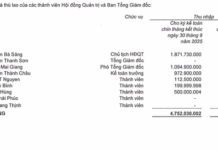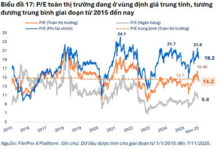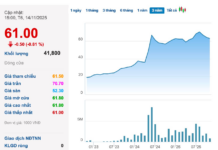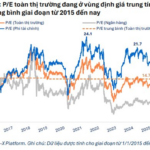During the Lunar New Year 2024, the Department of Information Security (Ministry of Information and Communications) issued continuous warnings along with measures to identify and prevent online fraud. However, during the Lunar New Year and especially the period after the holidays, online frauds still occur quite complexly when many people fall into traps due to increasingly sophisticated tricks of fraudsters, targeting a portion of the people who are gullible and lack knowledge.
Recently, a victim of a fraud scam with a bank account with the same name, Mr. T.H. (phone number 091696xxxx), said that he was hacked by fraudsters who used his Facebook account to send messages to borrow money from his friends, with a bank account that had the same name as him, and even the same bank he was using, but with a different account number.
The fraudster’s modus operandi is contrary to the assumptions of many victims. Firstly, the perpetrator will find ways to own bank accounts under any name through renting the accounts of students or people in the countryside. Or, the perpetrator uses other people’s ID cards to register and open online bank accounts remotely. The source of ID cards could be collected from lost documents, stolen or traded personal information online.
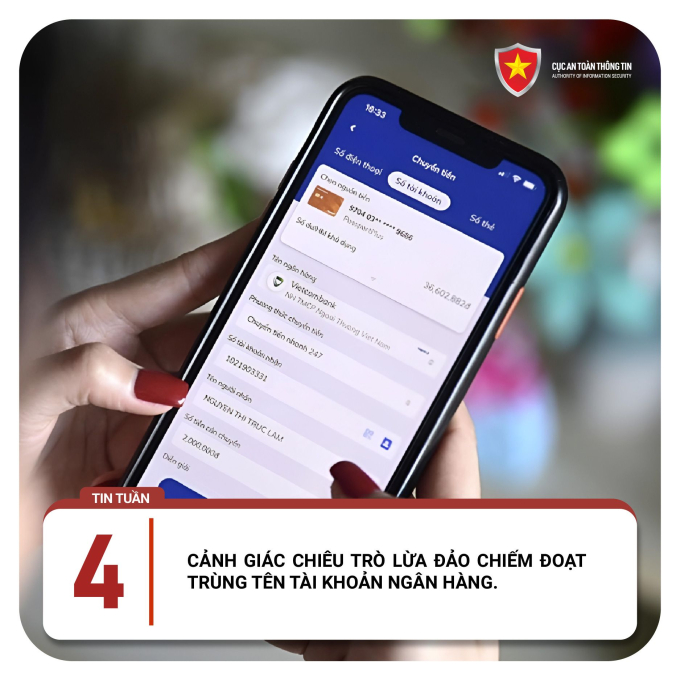
Image: Department of Information Security (Ministry of Information and Communications)
Then, the perpetrator will find someone with the same name as the account on social media platforms, hack into their Facebook accounts, send links to install malicious code, send emails with links leading to phishing websites … When the victim unfortunately falls into the trap, the perpetrator will quickly take over their Facebook accounts and send messages to borrow money or continue to send misleading links to other potential victims using the Facebook accounts of the victims.
In response to this situation, the Department of Information Security (Ministry of Information and Communications) advises that people should be cautious before conducting any transactions through social media platforms. Users should verify the identity of the counterpart accurately before engaging in any transactions. Never provide personal information, bank account numbers, OTP codes, etc. to strangers or on any dubious websites.
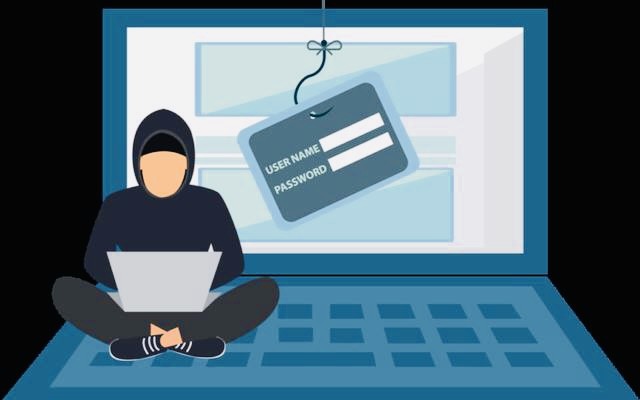
People need to be wary when conducting transactions through social media platforms, as being too trusting could lead to falling into scams to steal assets.
In addition, instances of attacks and gaining control over other people’s social media accounts to carry out fraudulent activities and asset theft are also currently widespread. According to the online fraud prevention handbook from the Ministry of Information and Communications, when detecting being defrauded, users should not continue to send money and should block all contacts from the fraudster. They should immediately report and request the bank and financial institution to stop all transactions. Also, warn your family and friends about this fraud scheme, so that they can be prepared for any potential scams that may occur in the future.













